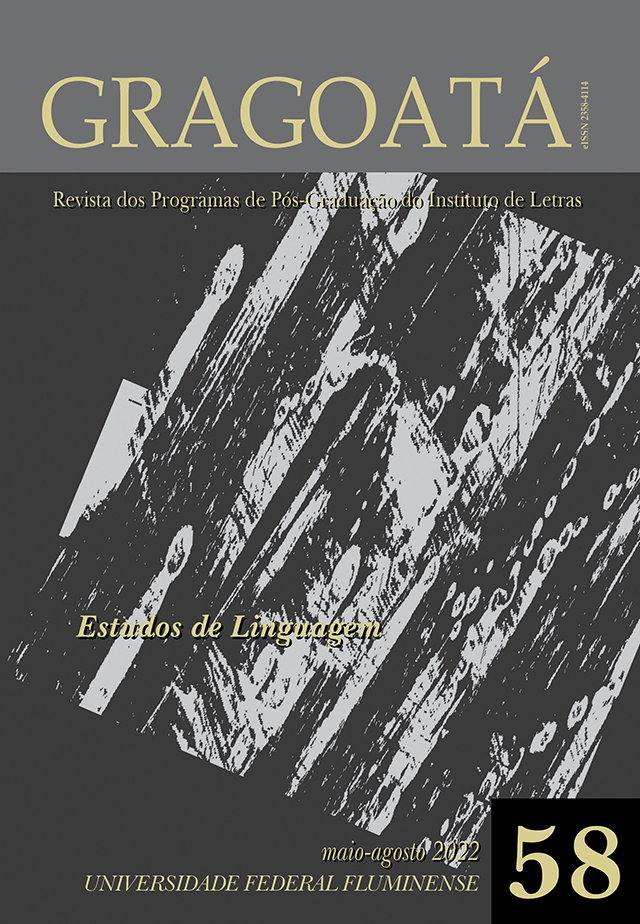An analysis of asymmetries in subject personal pronoun usage in brazilian portuguese and spanish
DOI:
https://doi.org/10.22409/gragoata.v27i58.51722Keywords:
subject pronoun, descriptive grammar, syntax, pragmaticsAbstract
The main purpose of this article is to reflect on first-person personal pronoun usage in Brazilian Portuguese and Spanish. Although both languages allow null subjects (Chomsky, 1981), the strategies used by Brazilian Portuguese and Spanish speakers differ regarding overt subject pronoun expression. First, we review the literature on personal pronouns in pro-drop languages from a syntactic perspective (Barbosa et al., 2005; Duarte, 2000; Fernández Soriano, 2000). Then, we examine these constructions in both languages taking into account the theoretical contributions of textual linguistics and pragmatics (Davidson, 1996; Leonetti, 2014; Padilla García, 2001; Stewart, 2003). Finally, we qualitatively examine the use of first-person subject pronouns in excerpts from interviews published in newspapers in Spain and Brazil, whose central theme is the COVID-19 pandemic.
Downloads
Downloads
Published
How to Cite
Issue
Section
License
Authors who publish in Gragoatá agree to the following terms:
The authors retain the rights and give the journal the right to the first publication, simultaneously subject to a Creative Commons license CC-BY-NC 4.0, which allows sharing by third parties with due mention to the author and the first publication by Gragoatá.
Authors may enter into additional and separate contractual arrangements for the non-exclusive distribution of the published version of the work (for example, posting it in an institutional repository or publishing it in a book), with recognition of its initial publication in Gragoatá.

Gragoatá is licensed under a Creative Commons - Attribution-NonCommercial 4.0 International.











